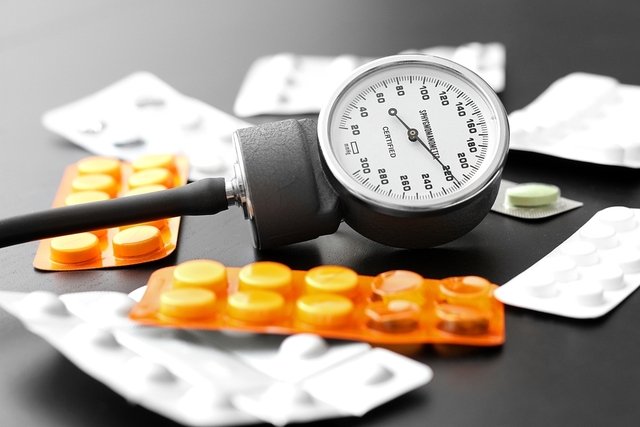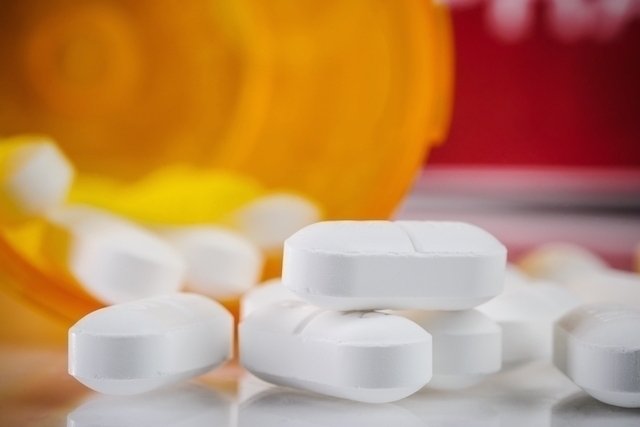Medicines for high blood pressure, called antihypertensives, are indicated to lower blood pressure and keep it under control, as high blood pressure can cause complications such as heart attack, heart failure, angina, kidney problems or stroke, for example.
There are a variety of medications that can be used to treat high blood pressure, such as diuretics, adrenergic blockers or vasodilators, for example, which must be indicated by the cardiologist on an individual basis according to the severity of the disease or the risk of complications. In some cases, these remedies may be used in combination.
Read too: Blood pressure: what it is, how to measure it and table by age
Medicines for high blood pressure should always be recommended by a cardiologist and medical monitoring should be carried out frequently to check whether the treatment is reducing blood pressure. In addition, the doctor should also recommend reducing salt consumption and practicing physical exercise, such as walking, for example, at least 3 times a week to help reduce blood pressure.

10 remedies for high blood pressure
The main medications for high blood pressure that a cardiologist can recommend are:
1. Furosemide
Furosemide, like bumetanide, is a loop diuretic, indicated for the treatment of mild to moderate high blood pressure or hypertensive crises.
This medicine acts on a specific part of the kidneys, called the loop of Henle, increasing the elimination of sodium, water and chlorine by the kidneys, in addition to causing blood vessel dilation, which helps to lower high blood pressure.
Furosemide has a powerful diuretic effect, with a rapid and short-lasting onset of action, and can be provided free of charge by the SUS, or purchased in pharmacies or drugstores as a generic or under the name Lasix. Learn how to use furosemide correctly.
2. Hydrochlorothiazide
Hydrochlorothiazide is another diuretic that may be recommended by your doctor, as it acts by increasing the elimination of salt through urine, as when salt is eliminated, it takes water with it, reducing the amount of liquid in the veins and arteries.
This medicine belongs to the class of thiazide diuretics and is provided free of charge by the SUS or can be purchased in pharmacies or drugstores under the names Clorana, Clorus or Diurix.
Other thiazide diuretics that may be recommended by your doctor are chlorthalidone and indapamide.
3. Spironolactone
Spironolactone is a potassium-sparing diuretic that increases the elimination of sodium and water by the kidneys, but prevents potassium from being eliminated, and may be indicated for people who have an increased risk of having low potassium in their blood.
Spironolactone can be found in pharmacies or drugstores under the names Aldactone or Diacqua, and is also supplied by the SUS. See how to take spironolactone correctly.
Other potassium-sparing diuretics that have a similar action are amiloride or triamterene, for example.
In some cases, these diuretics can be used together with other high blood pressure medications, depending on the doctor’s assessment and advice.
4. Clonidine
Clonidine is a centrally acting alpha-agonist medication that acts directly on the brain in the areas that control blood pressure and, thus, promotes the relaxation of blood vessels, allowing blood to circulate more easily, which reduces high blood pressure.
Other medications in this class of antihypertensives are methyldopa, guanabenzo, moxonidine and rilmenidine, for example.
5. Propranolol
Propranolol is a beta-adrenergic blocker indicated for the treatment of high blood pressure, generally for young people or those who have had a heart attack, as it helps the heart to beat slower and with less force, which lowers blood pressure.
Furthermore, this medicine also helps open the veins and arteries to improve blood flow.
Other beta blockers that may be recommended by your doctor are atenolol, carvedilol, metoprolol and nebivolol, for example.
6. Doxazosina
Doxazosin is an alpha-blocker, like Prazosin and Terazosin, that helps lower blood pressure because it prevents the hormone norepinephrine from tightening the muscles in the walls of arteries and veins.
This causes blood vessels to relax, improving blood flow in the body and reducing blood pressure.
Doxazosin is offered by the SUS free of charge or can be purchased in pharmacies under the names Doxuran, Duomo or Doxaprost, for example.
7. Hidralazin
Hydralazine, like minoxidil, is a direct vasodilator that promotes the relaxation of blood vessels, preventing them from contracting, which means that blood circulates more easily through the vessels and the heart does not have to exert much force to pump the blood. blood to the body, and therefore, help reduce blood pressure.
Hydralazine is also offered free of charge by the SUS.
8. Amlodipine
Amlodipine is a calcium channel blocker that lowers blood pressure because it prevents calcium from entering the cells of the heart and arteries.
In this way, it allows the blood vessels to relax and open, which improves blood flow in the body and reduces the effort on the heart to pump blood.
Other calcium channel blockers that may be recommended by your doctor are nifedipine, felodipine, nitrendipine, manidipine, lercanidipine, levanlodipine, lacidipine, isradipine, nisoldipine and nimodipine.
Additionally, some calcium channel blockers, such as verapamil and diltiazem, have the added benefit of slowing the heart rate, which can further reduce blood pressure, relieve chest pain, and control irregular heartbeat.
9. Enalapril
Enalapril is an angiotensin-converting enzyme inhibitor (ACEI) that prevents the production of angiotensin, a hormone that causes blood vessels to narrow and increases blood pressure, forcing the heart to work harder.
By preventing the production of this hormone, this medicine helps to relax the veins and arteries and reduce blood pressure, but it has the side effect of causing a dry cough.
Other angiotensin-converting enzyme inhibitors are captopril, ramipril and lisinopril, which can cause a dry cough as a side effect.
10. Losartan
Losartan is an angiotensin receptor antagonist that reduces blood pressure by preventing the effects of the hormone angiotensin, but without causing a dry cough.
In addition to losartan, other angiotensin receptor antagonists are valsartan, candesartan and telmisartan.
Possible side effects
Side effects of high blood pressure medications include dizziness, fluid retention, changes in heart rate, headache, vomiting, nausea, sweating, or impotence. If you notice any of these effects, you should inform your cardiologist so that the possibility of reducing the dose of the medication or even exchanging it for another can be assessed.
Medicines for high blood pressure do not make you fat, but some can cause swelling, and in these cases, the cardiologist may also recommend the use of diuretics.
When to stop taking antihypertensives
The use of medicines to control high blood pressure in most cases is maintained for life, because hypertension is a chronic disease, and treatment is important to reduce the risk of complications such as heart attack, stroke, aneurysm or kidney failure, for example.
These medications should be taken as recommended by the cardiologist, who should also advise the person to keep a diary recording the blood pressure measured at home. Learn how to measure blood pressure at home.
Home remedy options for high blood pressure
A great home remedy for high blood pressure is orange juice, as oranges are rich in potassium, which helps reduce blood pressure, as well as having antioxidants that help keep blood vessels healthy and prevent diseases such as atherosclerosis, heart attack or stroke. , for example.
However, grapefruit juice or grapefruit during treatment with antihypertensives, as this fruit can reduce the activity of the enzyme responsible for metabolizing these medications, which can cause an increase in side effects or intoxication.
Another good option for a natural remedy for high blood pressure is lemon juice with garlic. To do this, simply remove all the juice from 3 lemons, crush 2 cloves of garlic, put the juice, garlic cloves and 1 glass of water in a blender, blend well, sweeten to taste and drink during the day, between meals. meals. Check out other home remedy options for high blood pressure.
Watch the video with nutritionist Tatiana Zanin with tips to help control high blood pressure:
Remedies for high blood pressure during pregnancy
Medicines for high blood pressure during pregnancy, which can be prescribed by a cardiologist, are methyldopa or hydralazine, for example.
In the case of women who already had high blood pressure before becoming pregnant, the cardiologist must change the medication previously used, for medications approved for use during pregnancy, which do not cause problems for the baby.

Sign up for our newsletter and stay up to date with exclusive news
that can transform your routine!
Warning: Undefined array key "title" in /home/storelat/public_html/wp-content/plugins/link-whisper-premium/templates/frontend/related-posts.php on line 12
Warning: Undefined array key "title_tag" in /home/storelat/public_html/wp-content/plugins/link-whisper-premium/templates/frontend/related-posts.php on line 13




